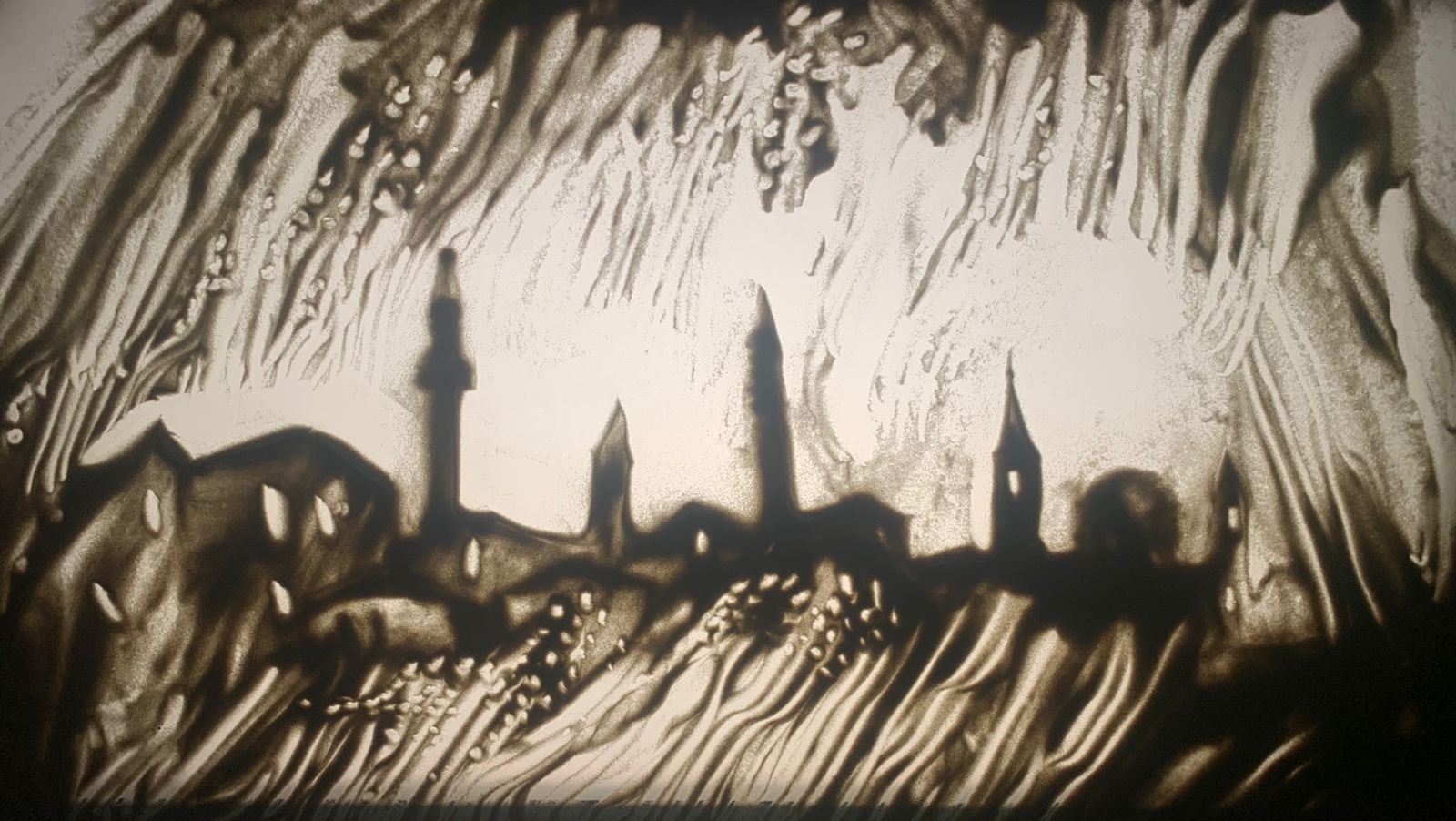
The Backstory

What Problem(s) Does Inquiry Arts Address?
Composer, educator and performer Guy Mendilow launched Inquiry Arts to address the intensification and calcification of high conflict at a period of rapid change. A social-work-turned-legal concept, high conflict is typically marked by a dangerous reduction of complex situations and choices into simplistic binaries — usually a distinct “us” vs monolithic, dehumanized “them,” whether Black vs White, Good vs Evil, Republican vs Democrat, etc.
It is vital to differentiate high conflict from healthy conflict, or “friction that can be serious and intense but leads somewhere useful,” as author Amanda Ripley writes, often expanding humanization rather than collapsing it. While healthy conflict requires neither agreement with, nor permission for others’ viewpoints and choices, when wisely navigated, it can result in increased understanding of the perspectives, experiences and circumstances underlying surface actions and talking points.
The way out of high conflict generally starts with people’s experience of being understood and accepted as they are, irrespective of agreement. Yet a paradox of high conflict is that it shuts down people’s willingness to listen and learn. Instead, high conflict frequently self-perpetuates through confirmation bias, or the tendency to interpret events and details as further evidence for one’s preexisting beliefs. By blocking its own exits, high conflict easily becomes all-consuming and totalizing, to the point that even listening to a member of the opposite identity can jeopardize one’s status and story-of-self.


Questions About
Civic Responsibility
Authors, educators and anti-poverty activists Karla Gottlieb and Gail Robinson define civic responsibility as “active participation in the public life of a community in an informed, committed and constructive manner, with a focus on the common good.” Inquiry Arts asks:
Who gets to be part of “the common good” — especially in high conflict?
What alternative narratives and blurred identities become more readily imagined when people frustrate simplistic binaries by exploring, and understanding, perspectives and experiences different from their own?
What changes become more feasible when individuals and communities expand the boundaries encompassing inclusion in “the common good?”


Experiment:
The Threshold
of Curiosity
Mendilow has a long record with the use of moving arts experiences to cultivate listening. It stretched from childhood participation in one of Johannesburg’s only integrated churches at the height of Apartheid to masters-level research and workshop development for Arab, Israeli, Pakistani and Indian educators using improvisation to set the stage for mediation. This experience was lent theoretical lenses through data from organizations like Columbia University’s Difficult Conversation Lab or StoryCorps. All suggest that the framing of questions, and the stories to which those questions lead, can further entrench high conflict by reinforcing binaries or create conditions for healthy conflict, growth and resilience. Narratives emphasizing complexity, multiple perspectives and nuance can prime participants for greater curiosity, in turn expanding possibilities for listening and of feeling more seen, heard and understood. While it is essential to stress that this does not mean legitimizing or amplifying others’ views and actions, nor creating false equivalencies, it is likewise imperative to emphasize that:
a) People generally want to be heard and understood and
b) Listening and understanding can catalyze pressure valves out of high conflict.
Mendilow views genuine curiosity as the threshold for generous listening. It invites honesty, dignity and aliveness and is therefore crucial for resilience and expanding notions of “the common good.” They wonder whether eliciting such curiosity and listening may be among the few actions that serve to engage with current conflicts without further inflaming polarized divisions.
For Mendilow, the performing arts offer vital vehicles towards curiosity and listening. Moving artistic experiences can be powerful agents for conversation: A coming together to listen to one another and share our stories to explore who we are and who we wish to be, building an understanding of how others have come to see what they see, believe what they believe and know what they know. Such artistic encounters can provide avenues to explore what is at stake, in human terms.
This requires excellence, defined as the combination of:
Rigorous artistic and production standards;
Emotionally resonant content; and
Relevance to audience members’ lived experiences.
All three elements must be fulfilled.
Also required are well-crafted questions and formats that promote a willingness to be vulnerable; surprised; to NOT have quick answers; to suspend assumptions and probe ambiguity. Agreement on specific issues is far less important than the principle that we are humans worthy of being heard and understood.
Mendilow sees Inquiry Arts as a powerful tool for these pursuits.
